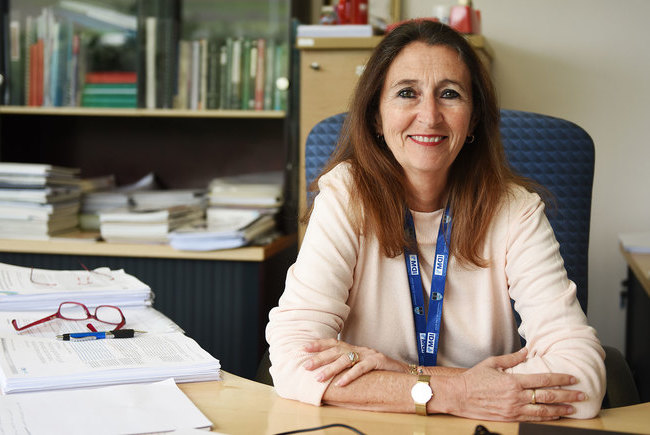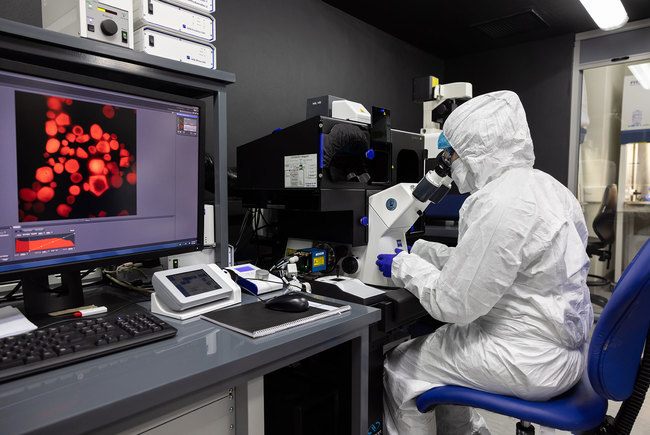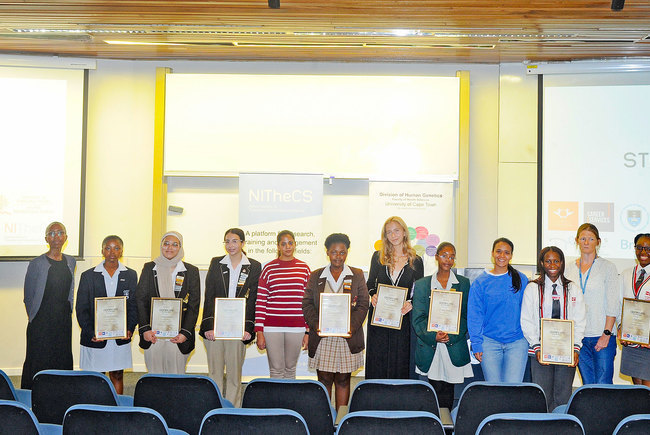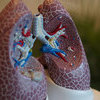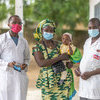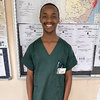Bending the arc towards health equity
25 March 2024 | Story Stephen Langtry. Photo Je’nine May. Read time 5 min.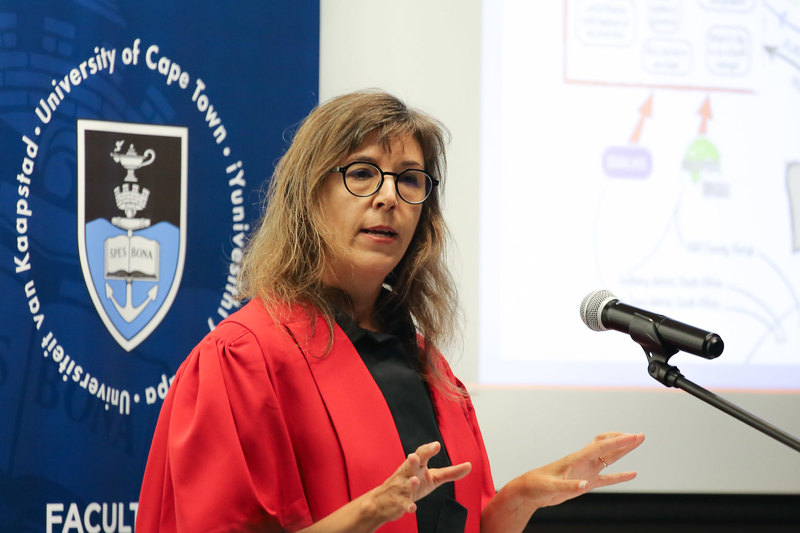
On 14 March, the Wolfson Lecture Theatre at the Faculty of Health Sciences buzzed with anticipation as guests gathered for the inaugural lecture of Professor Susan Cleary, the head of the School of Public Health at the University of Cape Town (UCT).
Drawing inspiration from Martin Luther King Jr’s assertion “The arc of the moral universe is long but it bends towards justice”, Professor Cleary articulated the imperative of collective action grounded in compassion and solidarity. Under the theme “Bending the Arc Towards Health Equity”, Cleary took the audience on a journey through three decades of her career, illuminating critical milestones in the pursuit of equitable healthcare.
Vice-Chancellor interim Emeritus Professor Daya Reddy welcomed everyone, acknowledging the importance of celebrating Cleary’s achievement in ascending to the rank of full professor. Emeritus Professor Reddy said that questions such as “What does health equity mean? How can we measure it and, most importantly, how can we achieve greater levels of health equity given the devastating levels of income and other forms of inequality in this country?” have “fuelled Professor Cleary’s outstanding work throughout her career”.
“As a leader in health economics research and teaching, Susan Cleary offers us an insider’s view of these questions, focusing on successes such as those in the early days of HIV treatment, the challenges we face in the areas of universal health coverage and national health insurance and her vision towards health equity in this stage of her career,” Reddy said.
Professor Edina Sinanovic, the director of the Health Economics Division in the School of Public Health, introduced Cleary. Referring to her many achievements, Professor Sinanovic said, “Sue’s career represents what UCT expects from its leading academics: significant contributions to education, strong research outputs, leadership roles at various levels and external contributions to policy-making bodies.”
Navigating three decades
In her lecture, Cleary navigated through the evolution of her career, delineating three pivotal movements. The first decade was characterised by advocating for equitable HIV treatment, amid the burgeoning epidemic that ravaged South Africa in the 1990s. She vividly recounted the challenges of confronting AIDS denialism and governmental reluctance to provide antiretroviral (ARV) treatment due to financial constraints.
“Leadership is more in the realm of the intangible. You can feel good leadership.”
During this period, she wrote her first peer-reviewed journal article, and soon after that she joined the Health Economics Unit. Merging science with activism, the relentless efforts of people like Cleary led to the successful rollout of ARV treatment in South Africa. One of the things that she learnt in the first decade of her career was that “health economics evidence can be powerful for advocating for investment; for bending the arc towards health equity”.
Transitioning into the second decade, 2010 to 2018, Cleary underscored the importance of building a broader economic evidence base to support health policy and systems research for other key diseases and interventions. Through initiatives like the Resilient and Responsive Health Systems (RESYST) consortium, she delved into work around governance and leadership development.
“Leadership is more in the realm of the intangible. You can feel good leadership, and it’s really hard to define what that means and to work out how to develop it,” she said.
Health inequity and universal health coverage
The culmination of Cleary’s lecture centred on the third decade, from around 2018 to date. She delved into the intricate nexus of health inequity and universal health coverage (UHC) expressed via the National Health Insurance (NHI) in South Africa. Her reflections on the NHI underscored the necessity of bridging the gap between public and private healthcare sectors to achieve affordability and financial risk protection for all South Africans.
“Love is the essential element that we need if we are to continue to bend the arc towards health equity.”
In terms of UHC, she said that South Africans can be proud of some things, especially with regards to affordability and financial risk protection. She said that the successful implementation of the NHI “entails leveraging good governance and leadership in order to both bend the arc towards equity with better population health outcomes”. In conclusion, Cleary said, “In my view, love is the essential element that we need if we are to continue to bend the arc towards health equity.”
 This work is licensed under a Creative Commons Attribution-NoDerivatives 4.0 International License.
This work is licensed under a Creative Commons Attribution-NoDerivatives 4.0 International License.
Please view the republishing articles page for more information.
Faculty of Health Science News








